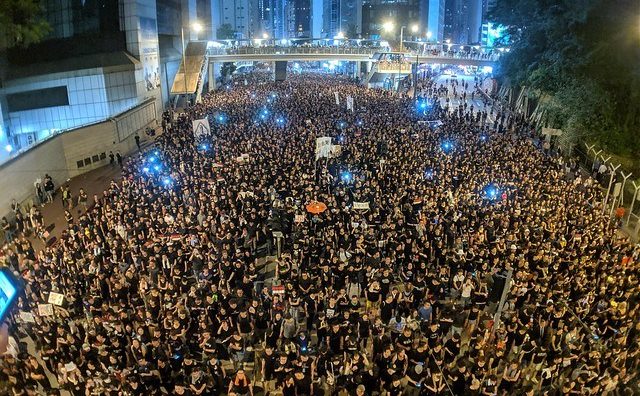As protests in Hong Kong show no signs of dying down, maintaining the status quo in the hope that the protesters will suffer from fatigue and the protests will naturally die down seems increasingly unlikely. Stakeholders and observers alike have been scrambling for a solution that might see the city move forward from its current woes and restore some semblance of peace and order.
The need for dialogue
On 17 August, in a joint statement by Federica Mogherini and the Minister of Foreign Affairs of Canada Chrystia Freeland on Hong Kong, the EU and Canada stressed that "engagement in a process of broad-based and inclusive dialogue, involving all key stakeholders, is essential.”
Considering how uncompromising protesters have been in their call for all of their demands to be met, dialogue in one form or another seems to be a sensible starting point. This is true even if there are doubts as to whether such heavy demands, on the part of the protesters, can be truly met.
In this case, dialogue should be thought of as dipping one’s toe in the water before diving into the pool.
What are protesters demanding?
From the slogans being chanted by protesters at rallies all over Hong Kong, the five key demands seem to be the following; the complete withdrawal of the proposed extradition bill, the removal the label of “riot” from the protests, the exoneration and release of arrested protesters, the establishment of an independent inquiry into the protests and universal suffrage in Hong Kong.
Who should engage in dialogue?
While vague calls for mediatory talks are starting to become familiar in diplomatic rhetoric, it is not immediately clear from the EU-Canada joint statement between whom dialogue should be held. Who are the “key stakeholders”, for example, that the EU and Canada are referring to?
Despite Britain being a signatory to the 1984 Sino-British Joint Declaration, it is clear in the eyes of Beijing that the UK is not a stakeholder in this evolving situation. In a statement, Chinese foreign ministry spokeswoman Hua Chunying said, “the UK has no sovereignty, jurisdiction or right of supervision over Hong Kong.” Even if China were to think otherwise, it is questionable whether the troubles in Hong Kong are worth the UK’s time as Boris Johnson stares down the barrel of a no-deal Brexit".
In a similar fashion, in response to the EU-Canada joint statement, China urged the EU to “immediately stop meddling in Hong Kong's affairs and China's internal affairs.”
The Hong Kong government: a clear stakeholder
On the basis of what protesters are demanding, it is clear that one party to the dialogue has to be the Hong Kong government. Indeed, the head of the EU office in Hong Kong, Carmen Cano, observed that the Hong Kong government has the solution to end the current situation and should begin by speaking with protesters.
In this respect, US President Donald Trump appears to show a lack of understanding of the situation in Hong Kong when he tweeted that “if president Xi would meet directly and personally with the protesters, there would be a happy and enlightened ending to the Hong Kong problem.”
The need for representation
Regardless of whether the Chinese government is willing to talk, the more pertinent question is who specifically any government would have a dialogue with. At present, there are no representative bodies or figures that have assumed leadership of the protests, which in part, explains the guerilla-type nature of the rallies and demonstrations that have sprung up in different districts and in varying forms all over the city.
The first step to reconciliation must be to identify who will engage in dialogue from the protester's side.
Justin Bong-Kwan


